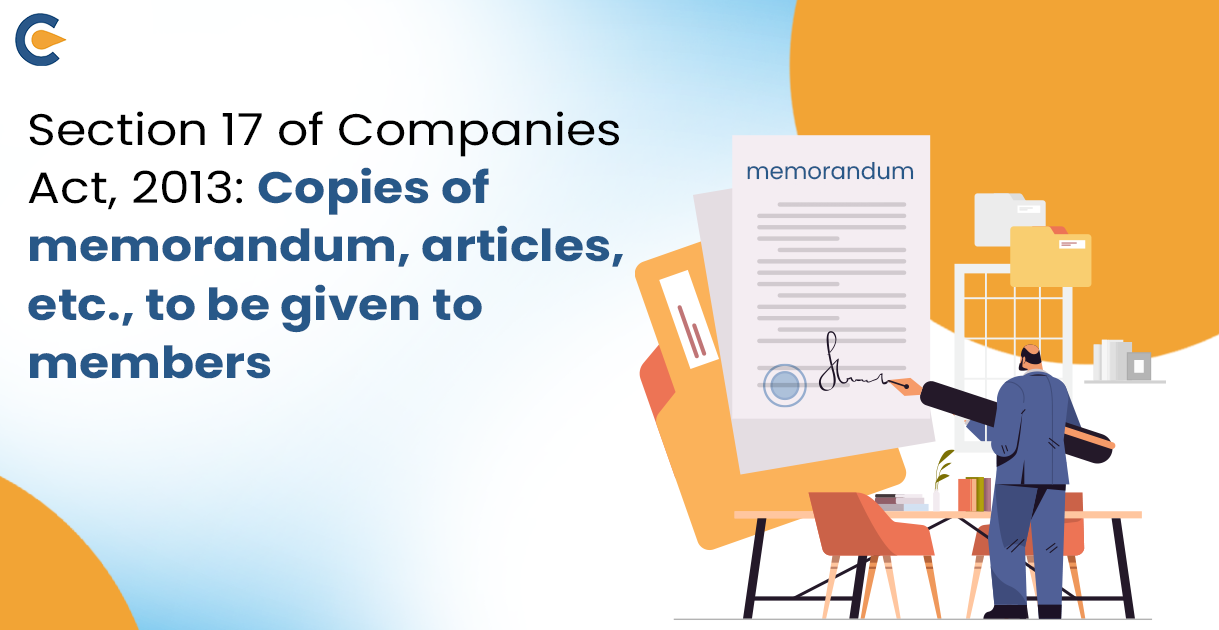To codify and update the legislation pertaining to companies, the Companies Act, 2013, was passed. The Companies Act of 1956 came before the Companies Act of 2013. The Central Government made the decision to update the Companies Act of 1956 with new law in response to changes in the domestic and global economic landscape as well as to support the expansion and growth of our economy. Corporate governance standards in India have been dramatically reinforced by the Companies Act, 2013. Increased disclosure requirements, stronger fines for non compliance, and measures relating to independent directors, required board committees, rotation of auditors, and independent directors have all been added. These regulations are meant to encourage justice, accountability, and openness in corporate governance.
Numerous changes have been made to the Companies Act, 2013, which will improve how simple and straightforward conducting business in India would be. It has implemented policies including online document filing, streamlined private placement regulations, and lowered compliance standards for small businesses. Companies, especially startups and small firms, now find it simpler to run and expand in India because to these reforms.
What do you mean by search?
Examining a person’s possessions, property, or other designated places in order to locate and gather proof of unlawful conduct or other illegal activities is referred to as search. The extent of searches might vary, and they could entail visual inspection, document inspection, or the application of equipment like metal detectors or X-ray scanners.
What is seizure?
When police enforcement or government agents seize objects, property, or evidence they think may be useful in an investigation or legal proceeding, this is known as seizure. Usually, the authorities hold onto the objects they have confiscated in order to conduct additional investigations or use them as evidence in court.
Section 209 of Companies Act, 2013
If the registrar or inspector has reasonable grounds to think that documents related to the company’s business may have been lost, damaged, changed, forged, or hidden, he may file a special court application.
The Special Court may, by order, authorize it to enter into the locations or buildings where books and papers are kept, to search such locations, and, after allowing the corporation to make copies, to confiscate the books and papers if needed. The provisions of the Code of Criminal Procedure must be followed during any search or seizure.
180 days are allowed for the repatriation of the confiscated papers. Before handing over the books and papers, the Registrar has the option of making duplicates of any document or adding identification markings to them. If necessary, he might request the papers once again.
Section 209 (1) – when the inspector or the registrar have the grounds to think based on the papers and the book of accounts which are in him possession of –
- a company,
- or relating to the key managerial personnel or
- any director or
- auditor or
- company secretary in practice (if the company has not appointed a company secretary),
Following receiving a Special Court order authorizing the seizure of such books and papers, he may go into the place(s) where they are kept, with the support that may be necessary, and search there. He can subsequently seize any documents and books that he deems vital, after permitting the company to make copies of or extracts from the books and papers at its cost.
What is the period of seizure?
Original term of seizure: The Registrar or inspector shall restore the books and documents confiscated under sub Section (1) to the organization from whose possession or power such books or papers have been taken as soon as is possible, but in no event later than the 180 days following such seizure. If the books and documents are required once again, the Registrar or inspector may issue a written order requesting them for a further 180 day term.
Before returning the aforementioned books and documents, the Registrar or Inspector may make copies of them, extracts from them, mark them or any portion of them with identification numbers, or otherwise deal with them as he deems necessary. [Proviso 2 of Section 209(2)]
Every search and seizure conducted under this Section is subject to the regulations of the Code of Criminal Procedure, 1973, mutatis mutandis. [Section 209 (2), Proviso 3]
Conclusion
In conclusion, the Section 209 of Companies Act, 2013 acts as a very vital tool for the regulatory authorities, who oversee the activities that take place in the companies in relation of violation of laws. The registrar or the inspector has the power to order for a search or seizure if there are grounds for suspicion that the rules and regulations are being violated. The rules followed at the time of search and seizure in the Companies Act is same as the code of criminal procedure.
Frequently Asked Questions
Companies suspected of breaking laws or regulations may be subject to search and seizure processes, according to Section 209 of Companies Act, 2013..
The goals of a search and seizure include obtaining evidence, stopping its destruction, finding people breaking the law, and preserving the accuracy of business records.
Search is the process of looking through someone’s belongings, property, or designated locations to locate and gather proof of criminal behaviour or actions.
Before returning the books and documents that have been seized, the Registrar or Inspector may make copies, extracts, add identification markings, or take any other action deemed required.
The Code of Criminal Procedure, 1973’s requirements apply to searches and seizures carried out in accordance with Section 209 of the Companies Act.
The Micro & Small category of Brandowners are exempted from fulfilling EPR obligation. Remaining entities are required to be registered on Centralized EPR portal in line with notified EPR Guidelines.
For regulatory agencies to look into possible legal infractions within corporations, Section 209 is a crucial instrument. To promote openness and adherence to corporate governance norms, it permits searches and seizures under stringent legal criteria that are comparable to the Code of Criminal Procedure.
A seizure is when a law enforcement officer or government official takes custody of something they think may be helpful in their investigation or a court case.
If a company, key managerial personnel, director, auditor, or practicing company secretary (if the company hasn’t appointed one) is suspected of breaking the law, the registrar or inspector may ask for a search or seizure
Read Our Article: Section 169 Of The Companies Act, 2013: Removing Directors











